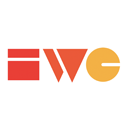#meta 2025-07-22
2025-07-22 UTC
#  [tantek] 360.5 days until World Emoji day! https://en.wikipedia.org/wiki/World_Emoji_Day
[tantek] 360.5 days until World Emoji day! https://en.wikipedia.org/wiki/World_Emoji_Day
#  gregorlove.com edited /Huffduffer (+366) "+Issues section with citation why no front-facing tags system" (view diff)
gregorlove.com edited /Huffduffer (+366) "+Issues section with citation why no front-facing tags system" (view diff)
#  gregorlove.com edited /large_language_model (+125) "/* Other Criticism */ huffduffer/AI scraping info" (view diff)
gregorlove.com edited /large_language_model (+125) "/* Other Criticism */ huffduffer/AI scraping info" (view diff)
#  osteophage.neocities.org edited /large_language_model (+1002) "added criticism about bandwidth and ignoring robots.txt" (view diff)
osteophage.neocities.org edited /large_language_model (+1002) "added criticism about bandwidth and ignoring robots.txt" (view diff)
#  osteophage Yeah it's a nightmare.
osteophage Yeah it's a nightmare.
#  osteophage Seems pretty inextricable from being open.
osteophage Seems pretty inextricable from being open.
gRegor joined the channel
#  [tantek] that said, there are public parks with streams and perhaps there's a good analogy here where you're allowed to drink from a stream (as a human, take your own risks on the water quality), however you're not allowed to siphon off all the water into your tanker and go sell it as "stream water".
[tantek] that said, there are public parks with streams and perhaps there's a good analogy here where you're allowed to drink from a stream (as a human, take your own risks on the water quality), however you're not allowed to siphon off all the water into your tanker and go sell it as "stream water".
MrNice joined the channel
#  trwnh "anyone can have a page/site without permission of facebook et al" perhaps some kind of independent web... an indie web if you will... hmm... 🤔
trwnh "anyone can have a page/site without permission of facebook et al" perhaps some kind of independent web... an indie web if you will... hmm... 🤔
#  trwnh but otherwise you could maybe think about "commons" of a sort
trwnh but otherwise you could maybe think about "commons" of a sort
#  trwnh doesnm: it was a quote of [mattl] from a few hours ago
trwnh doesnm: it was a quote of [mattl] from a few hours ago
#  trwnh anyway, the thing about scrapers is that i generally don't care to discriminate against them, as long as they aren't costing me anything. standard caveats apply (public is public, etc) so if you want to meaningfully change anything then you need some basis for applying policies to requests, and you need to make licenses discoverable in a standard way (insofar as anyone respects licenses, or otherwise if they disrespect your license you can
trwnh anyway, the thing about scrapers is that i generally don't care to discriminate against them, as long as they aren't costing me anything. standard caveats apply (public is public, etc) so if you want to meaningfully change anything then you need some basis for applying policies to requests, and you need to make licenses discoverable in a standard way (insofar as anyone respects licenses, or otherwise if they disrespect your license you can
#  trwnh apply a policy to reject their requests)
trwnh apply a policy to reject their requests)
#  trwnh i do think "put your info out there and expect it to never be misused" is something that fails any serious test
trwnh i do think "put your info out there and expect it to never be misused" is something that fails any serious test
#  trwnh the foundation of maintaining expectations for your resources is to never share your resources more widely than you intend to. i would wager that the vast majority of personal information is actually *not* something that should be made fully public. in most cases you want to have some idea of how far that info will spread and what people will do with it. "who wants to know?" is a common contextual modulator
trwnh the foundation of maintaining expectations for your resources is to never share your resources more widely than you intend to. i would wager that the vast majority of personal information is actually *not* something that should be made fully public. in most cases you want to have some idea of how far that info will spread and what people will do with it. "who wants to know?" is a common contextual modulator
#  trwnh open access is useful for things that should be public, like scientific findings or datasets. but if you want access control then the open web is not very good at providing that... whereas something like facebook can easily provide that.
trwnh open access is useful for things that should be public, like scientific findings or datasets. but if you want access control then the open web is not very good at providing that... whereas something like facebook can easily provide that.
barnaby joined the channel
#  trwnh the problem is that we don't have a really good foundation for identity that can be used to authenticate an http request, or a bearer token or capability management system that can be used to authorize an http request
trwnh the problem is that we don't have a really good foundation for identity that can be used to authenticate an http request, or a bearer token or capability management system that can be used to authorize an http request
#  trwnh or otherwise to establish a session on a website facebook-style
trwnh or otherwise to establish a session on a website facebook-style
gRegor, barnaby, claudinec, hedy, capjamesg and vikanezrimaya joined the channel
doesnm joined the channel
[schmarty] joined the channel
#  [social] In my Complexity / Social Lenses I have a lot of work on the public, private, and in between space (the transitional space, like a front porch) and the advantages and how to work through building it.
[social] In my Complexity / Social Lenses I have a lot of work on the public, private, and in between space (the transitional space, like a front porch) and the advantages and how to work through building it.
barnaby joined the channel
gRegor joined the channel
#  [social] I have pieces I’ve included around Social Comfort as well. I use this rather than trust to help understand boundaries and what is public, private, and the in between space.
[social] I have pieces I’ve included around Social Comfort as well. I use this rather than trust to help understand boundaries and what is public, private, and the in between space.
#  [social] I need to dig. I have some public talks / presentations, but much of it was workshops. A lot of it was helping large companies sort it out. I may have written up chunks of it. I have a long write-up I did around Google+ and its problems with boundaries (there really weren’t any that were clear and not porous.
[social] I need to dig. I have some public talks / presentations, but much of it was workshops. A lot of it was helping large companies sort it out. I may have written up chunks of it. I have a long write-up I did around Google+ and its problems with boundaries (there really weren’t any that were clear and not porous.
#  [social] I used a paper by Douglas Appleyard, “Livable Streets” as part of the foundation for the in between space / porch.
[social] I used a paper by Douglas Appleyard, “Livable Streets” as part of the foundation for the in between space / porch.
#  [social] The downside of doing work for large companies (and doing it well) is it focusses on their distinct needs, technologies in place, but also how they deal with rick and compliance. The other piece is this isn’t public facing work, but often under NDA for long stretches.
[social] The downside of doing work for large companies (and doing it well) is it focusses on their distinct needs, technologies in place, but also how they deal with rick and compliance. The other piece is this isn’t public facing work, but often under NDA for long stretches.
#  [social] To work around the NDA I often use things I have out there publicly as a base.
[social] To work around the NDA I often use things I have out there publicly as a base.
#  [social] The loss of SlideShare functioning properly after it left LinkedIn means a lot of that stack of things I had public in presentations is now hard to find and use.
[social] The loss of SlideShare functioning properly after it left LinkedIn means a lot of that stack of things I had public in presentations is now hard to find and use.
gRegor joined the channel
#  Loqi SlideShare is a presentation hosting/sharing silo, owned by LinkedIn, which is now owned by Microsoft, that requires Javascript just to navigate to next/previous slides https://indieweb.org/SlideShare
Loqi SlideShare is a presentation hosting/sharing silo, owned by LinkedIn, which is now owned by Microsoft, that requires Javascript just to navigate to next/previous slides https://indieweb.org/SlideShare
#  [social] I need to sort out how have my own version and feed into theirs easily. The new endeavor is https://jaunt.com
[social] I need to sort out how have my own version and feed into theirs easily. The new endeavor is https://jaunt.com
#  [social] I know I haven’t written it up, but it is discussed a lot. Rashmi and Jon who started Slideshare are building a new version which looks good.
[social] I know I haven’t written it up, but it is discussed a lot. Rashmi and Jon who started Slideshare are building a new version which looks good.
#  [social] An overview of my Complexity Lens work is in this Jaunt https://jaunt.com/j/seeing-clearly-through-the-fog-of-complexity-1049
[social] An overview of my Complexity Lens work is in this Jaunt https://jaunt.com/j/seeing-clearly-through-the-fog-of-complexity-1049
[Sophia_wood] joined the channel
#  Loqi Glitch is a service that shutting down project hosting and user profiles 2025-07-08. It allowed you to quickly prototype web applications in a complete IDE with built in version control, sharing, custom domain support, and more https://indieweb.org/Glitch
Loqi Glitch is a service that shutting down project hosting and user profiles 2025-07-08. It allowed you to quickly prototype web applications in a complete IDE with built in version control, sharing, custom domain support, and more https://indieweb.org/Glitch
#  Loqi Glitch was a service that allowed people to quickly create static and NodeJS applications in a browser or by importing a git repo. The shut down project hosting and user profiles on 2025-07-08. It allowed you to quickly prototype web applications in a complete IDE with built in version control, sharing, custom domain support, and more https://indieweb.org/Glitch
Loqi Glitch was a service that allowed people to quickly create static and NodeJS applications in a browser or by importing a git repo. The shut down project hosting and user profiles on 2025-07-08. It allowed you to quickly prototype web applications in a complete IDE with built in version control, sharing, custom domain support, and more https://indieweb.org/Glitch
#  gregorlove.com edited /Glitch (+575) "+How to section, alternatives, mv up Jenn's article" (view diff)
gregorlove.com edited /Glitch (+575) "+How to section, alternatives, mv up Jenn's article" (view diff)
marc_in_space, bugliker02, barnaby and bugliker027 joined the channel
#  Loqi It looks like we don't have a page for "free domains" yet. Would you like to create it? (Or just say "free domains is ____", a sentence describing the term)
Loqi It looks like we don't have a page for "free domains" yet. Would you like to create it? (Or just say "free domains is ____", a sentence describing the term)
#  Loqi Free domain names are provided by certain domain name registrars without cost https://indieweb.org/free-domain-names
Loqi Free domain names are provided by certain domain name registrars without cost https://indieweb.org/free-domain-names
#  gRegor free domains is /free-domain-names
gRegor free domains is /free-domain-names
bugliker02, bugliker027 and gRegor joined the channel

